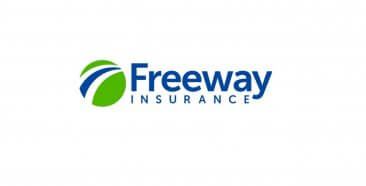
Were you driving drunk and got into an accident? You may be wondering how this will affect your car insurance and how you are going to afford all of the financial ramifications of getting convicted of a DUI accident. Learning how to budget after a DUI accident can be tricky. Is there such a thing as cheap DUI auto insurance?
We’ll outline all the potential costs of a DUI below, as well as a few tips for budgeting so you can make sure you’re financially ready to handle it all.
How Much Does Insurance Go Up After an Accident if You Were Drunk?
Depending on where you live and the circumstances of the incident, your car insurance could increase anywhere from 40% to 400% for a DUI conviction. If you cause an accident and someone is injured or killed, you’ll be facing a lifetime of consequences – financial and emotional. An accident while driving drunk will typically enhance your legal and financial problems substantially.
Here are some examples of how much your car insurance will go up after a DUI.
In California, the costs can be staggering. The Administrative Office of the Courts estimates that the cost of annual auto insurance increase over 13 years will be around $40,000. That’s roughly $3,000 extra a year you’d need to pay as a consequence of driving drunk.
And in Colorado, the numbers aren’t quite as much, but they’re still grim. The Colorado Department of Transportation estimated that over a five-year period, a driver would pay an additional $3,600 in auto insurance increases. That’s an extra $720 a year.
These are just a couple of figures, but as you can see, the costs aren’t pretty. Getting a DUI is not a walk in the park, and it has drastic financial consequences for your insurance premiums. These increased rates will last for 3-5 years in most cases, but it could be longer if you get into an accident while driving intoxicated.
In most states, a DUI conviction means you will be required to carry an SR-22 certificate. This certificate is actually filed with the state by your insurance company and lets the state know you are carrying required car insurance. It costs about $25 to file the SR-22, but once you are required to have an SR-22, you are considered a riskier driver and will be paying high-risk car insurance prices.
How Much Does Insurance Go Up After an Accident if You Were Drunk But Not at Fault?
If you get convicted of DUI – whether you cause an accident or not, your car insurance will increase. Just because you weren’t at fault doesn’t absolve you of all responsibility. You were driving drunk, which puts everyone at risk. It could have just as easily have been you that caused an accident. You might think this is unlucky, but it serves as a warning not to drive drunk again.
Other Costs Involved With a DUI
DUI auto insurance is just one part of a DUI. You also need to factor in several other things before you can start creating a budget for your costs.
Fines and Court Fees
In most states, you’ll have to pay a fee for a DUI. This is often a standardized amount that increases with multiple offenses. In addition to paying the fee on your ticket, you may also need to pay separate fees for funds related to DUIs, like a Victim Assistance Fund or Victim Compensation Fund. You’ll also likely need to appear in court, meaning you’ll need to pay an attorney to help you.
Using the same state data from above, in both Colorado and California, the combined costs here are around $4,000.
Towing and Storage Fees
The cops won’t just let you drive home after they discover you’re drunk. Lucky for you, you’ll get a free ride to your local police station. As for your car, it isn’t so lucky. Most likely, the cops will have it towed to the local impound lot. This cost isn’t free, and you’ll also be charged for every day your car is stored there.
In Colorado, towing runs about $175, and the car storage fee per day is about $50. Estimates for California are higher at around $137 a day. Since you’ll be spending the night in jail, you’ll definitely have to pay for at least one day of storage, but you may have to pay more if you can’t find someone to go with you to pick up the car.
Car and Property Damage
If you have a good liability car insurance policy, it should cover injuries and property damage to the other party if you’re in an accident. But if you only carry liability insurance, then you’ll be responsible for damage to your own car and property. Obviously, this can add up quickly if you’re in a fender bender or hit your mailbox. But it can be even worse if you total your car entirely.
Medical Bills
Again, liability insurance should cover most medical bills for the other party in an accident. But even these policies do have limitations. For example, a standard bodily injury liability policy only covers $25,000 per person in an accident, with a total limit of $50,000 per accident if you are carrying the state-required minimum liability insurance. If you seriously injure someone who needs an extended hospital stay or lifelong care, that might not come close to covering their medical payments.
Loss of Income
Getting a DUI isn’t just about racking up insurance costs – it’s also about losing income. You’re guaranteed to lose at least one day of work because you’ll be stuck in jail. You’ll also need to take time off for court appearances, community service, or lawyer meetings. All of this adds up and can be especially frustrating when you need every penny you can get.
Tips for Budgeting After a DUI

Managing all of these costs doesn’t have to bankrupt you. It will just take a little bit of planning to make sure you can prioritize where your money is going. By using these tips, you can keep costs low and affordable. Remember that keeping your car insurance current is vitally important. Insurance companies are required to report any lapses to the state. If you are found to have let your insurance lapse, your time to carry expensive auto insurance could be reset.
1. See If You Can Use a Payment Plan
Some states and counties allow you to utilize a payment plan when paying back court fees. Of course, every place has a different fee structure. Make sure you check with your local court to see what they allow. See if you can work out a monthly payment system, so you don’t have to write a check for the total amount at once.
2. Put Away Some Extra Money Each Month
Paying off your DUI means you’ll have less cash on hand, but try to save a little more each month that you can put toward your payments (and your emergency fund). Hopefully, you’ve cut back on trips to the bar, which should save you some cash. You might also make all your meals at home, avoid splurges on unnecessary items, and visit thrift stores or other low-cost locations for things you need to buy.
3. Try to Take Traffic School
If your car insurance premiums are the main culprit behind your budget issues, you may be able to lower them a little bit if you take traffic school. Some states may even require you to take a driving class after your conviction. Keep in mind that you won’t be able to get rid of the DUI increase on your rates completely, but you may be able to lower your premiums and make them slightly more affordable. Many insurers offer a discount for taking defensive driving classes, and even if they don’t, it’s a great way to learn safe driving techniques, so you don’t get in another accident.
4. Downgrade to a Cheaper Car
When your insurance rates spike after a DUI, it might cause your jaw to drop. One way you can help lower your rates again is to downgrade your car. If you currently own a late-year model with all of the latest features, it’s going to cost you a lot more to insure than a five-year-old base model.
You might also think about dropping your coverage levels as well. Definitely keep high amounts of liability coverage, but collision and comprehensive might be things you could do without at the moment.
5. Get Cheap SR-22 Insurance
Many states require you to get an SR-22 after a DUI. Basically, an SR-22 is proof of financial responsibility you need to carry after a traffic-related offense. It’s often required of high-risk drivers as a way to ensure you have enrolled in the appropriate insurance coverage. On its own, an SR-22 isn’t expensive – it usually costs just $25 to file. However, when insurance companies see you have an SR-22 on record, it’s a sign that they can charge you a lot more for your premium.
That’s why it might be a good idea to shop around for a new affordable policy. Many car insurance companies, such as Freeway Insurance, specialize in a cheap DUI solution for drivers with an SR-22. You may be reluctant to switch providers, especially if you’ve been with your current one for a while. However, the cost savings will be more than worth it at the end of the day.
Find Cheap DUI Insurance Online Today
Auto insurance doesn’t have to break the bank after a DUI. With Freeway Insurance, you can find affordable auto insurance, even if you need an SR-22. Freeway can offer you a fast, no-obligation quote for car insurance online, or you can call us at 800-777-5620 or visit us at one of our many locations today.


